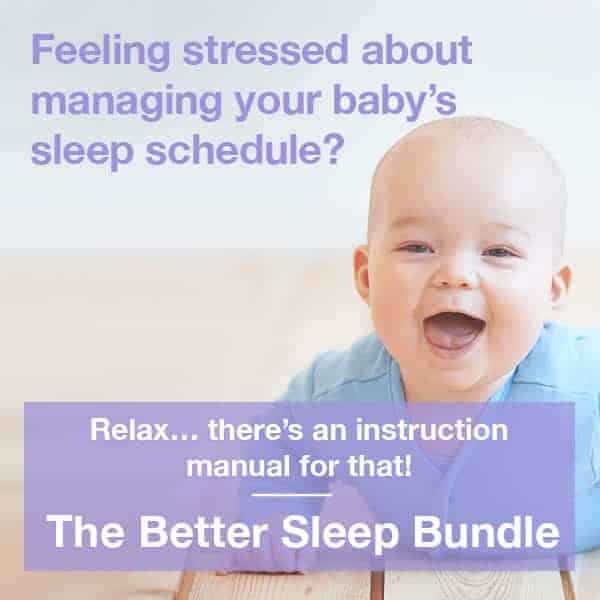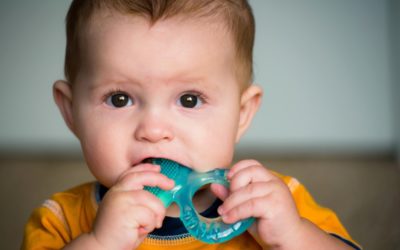Why is my Baby Crying or Whining to Sleep?
You have probably noticed your little one making noises or fussing in the night, though your baby may still be fast asleep. Some babies move around while moaning, though they are sleeping.
As babies grow, they develop more ways to express themselves. Crying can be a sign most babies are having nightmares occur. Toddlers and older infants crying in their sleep often do so when making other sounds like moving around the bed or changing positions.
Babies cry to communicate their needs. This is especially true of newborns who nurse or take a bottle every few hours, and hunger may be the most common one they express in this way.
How to Sooth Your Crying Baby
A baby crying in the middle of the night is one of the worst sounds a mother can hear. Everyone knows babies cry, but did they also know they cry in their sleep. Baby’s Sleep is a fickle thing. One never knows if a baby is in light sleep or deep sleep or if they’re having a wonderful dream or a scary nightmare.
The only thing to do when your baby’s sleep is interrupted by cries is to soothe them.
Hunting down a way to soothe baby cries to get a good night’s sleep?
Try these tips:
- Wait a Moment – remember that babies are restless sleepers and they might be whimpering or briefly waking because of this.
- Reassurance- . Gentle reassurance by way of a belly rub and a calming voice can let your baby know they’re there to comfort them, just keep this check-in short and sweet so she gets the message that it’s time for bed.
- Swaddle- Newborn through 2 months, snugly wrapped lightweight blankets promote good sleep.
- Temperature- With a thermometer, you can easily read to see that your baby’s room is set just right between 68-72 degrees. This is the ideal temperature for proper sleep.
Is it Normal For Babies to Cry in Their Sleep?
Newborns and young babies may be seen grunting, crying, or screaming in their sleep. Their bodies have not yet mastered the challenges of regular sleep patterns so it is common for them to wake up frequently or make strange sounds while they are dreaming. For very young children, crying is their main form of communication
A baby will usually cry two to three hours a day until about 3 months, this is considered normal. A baby’s sleep is often restless and full of dreams, cries can occur at night and cause sleep problems.
Nighttime crying can also be pinned to a sleep regression, which is like the baby version of “growing pains.” You might encounter light sleep. This is a normal setback in your baby’s nighttime routine around 4 months old, at 6 months, and again between 8-10 months olds.
An average newborn sleeps 14-17 hours a day; An average child sleeps 10-13 hours a day.
Why Does This Happen?
To better understand why some babies are moving and even crying during sleep, let’s talk about the different stages of sleep.
Sleep is divided into 2 distinct states: REM (rapid-eye-movement) sleep, and non-REM sleep.
Non-REM
Non-REM sleep can be further divided into 4 stages. When we are in non-REM sleep, we dream very little and our bodies lie still.
REM Sleep
When we are in REM sleep, our heart rate and breathing become irregular and our brain function increases.
This is where we do most of our dreaming. Although our brain function increases, our bodies become very relaxed and the nerve signals that usually pass down through the spinal cord and out to the muscles are blocked.
This reduces the likelihood of us acting out our dreams. Throughout the night, we cycle through non-REM and REM sleep, occasional baby wakes in between. An adult sleep cycle lasts about 90 minutes and we spend about 20% of our total sleep in REM sleep.
Active Sleep
Babies cycle through 2 distinct sleep states also: active sleep and deep sleep.
A baby’s sleep cycle usually lasts around 40-50 minutes, and they spend about 50% of their sleep in.
When a baby is in this sleep mode, the nerve signals are not fully blocked because the inhibitory system hasn’t fully developed yet. This means that more impulses get through to the muscles, often resulting in babies twitching, moving their limbs, smiling, or making sounds.
This contrasts to an adult in active sleep who is essentially (or at least typically) paralyzed. The inhibitory system fully develops around the same time baby learns to crawl or walk, so the baby stays safely in place while sleeping.
Baby Sleep Patterns
Babies have different sleep patterns, and it can be difficult to predict how they’ll react. Some babies may take long day naps while others only get a quick nap in between feedings.
Newborns are likely to wake up every night at least once or twice for feeding time, but this changes as the baby gets older and establishes sleep training. In general, though, your child will need more frequent short naps less than an hour each when they’re newborn through 6 months old.
Different Types of Baby Cries
Different types of baby cries include the pain cry, which sounds eerie and comes in high-pitched grating.
Your baby may make a sound like they’re trying to pass bowel movements with this type of crying; it’s easy to distinguish because it is urgent and distressed sounding.
If there are associated pains such as an ear infection, your child will also have a higher-pitched whine that can be startling when you hear for the first time!
Colic is defined as a baby cry continuously over 3 hours per day without any other signs or symptoms – though experts still don’t know exactly what causes colics yet today…
When To See a Pediatrician
Sleepless nights can be the most difficult and frustrating moments for any parent. Knowing when to call your pediatrician is essential, but understanding what defines an excessive cry helps you understand this better as well.
Excessive crying happens over a period of two or three hours with no other symptoms like fever or diarrhea present in addition to frequent daytime sleepiness too because it’s common that babies who are excessively fussy at night have trouble sleeping during the day due to tiredness/overstimulation.
If your baby spends more than four consecutive hours per day fussing throughout his days (eight waking hours) without significant relief from normal routine behaviors such as eating, playing, taking naps, etc., then he might qualify for treatment by a physician experienced
While it might seem scary or alarming when your baby is moving during sleep, there is a good reason for it. If you suspect that your baby’s movements are out of the ordinary, it’s always a good idea to check with your doctor.
Final Words
Hope you better understand some of the fussing and noises your little one may be making at night. Remember, it is normal for babies to cry in their sleep, so don’t panic over your baby crying while sleeping. There are many reasons why a baby might make these sounds during their sleep cycles, including hunger.
Are you hoping to establish healthy sleep for the whole family? Check out our sleep course!
FAQ’S
Will a baby cry less if they sleep with their mother?
A baby’s health can be improved by sleeping close to parents. Research has shown that babies who sleep with their mom and dad have more regular heartbeats, breathing patterns, and they even sleep better. Babies are also less likely to suffer from SIDS when they’re close to their families as well.
Will a baby cry less if given a pacifier?
A pacifier can dramatically reduce your baby’s crying because it lowers their heart rate, blood pressure, and stress levels. It also helps when they’re getting shots or needle tests so that the pain is lessened.
(Pacifiers can present a choking hazard if they are attached to strings. If you want your baby to use the pacifier at night, be sure not to give them one while learning how to breastfeed because it may cause confusion with breastfeeding.)
If a baby cries in their crib are they scared?
It’s actually rare for infants to be scared— most often, young babies crying during the night isn’t related to fear. However, you may begin noticing nightmares when your baby is around 18 months old.











